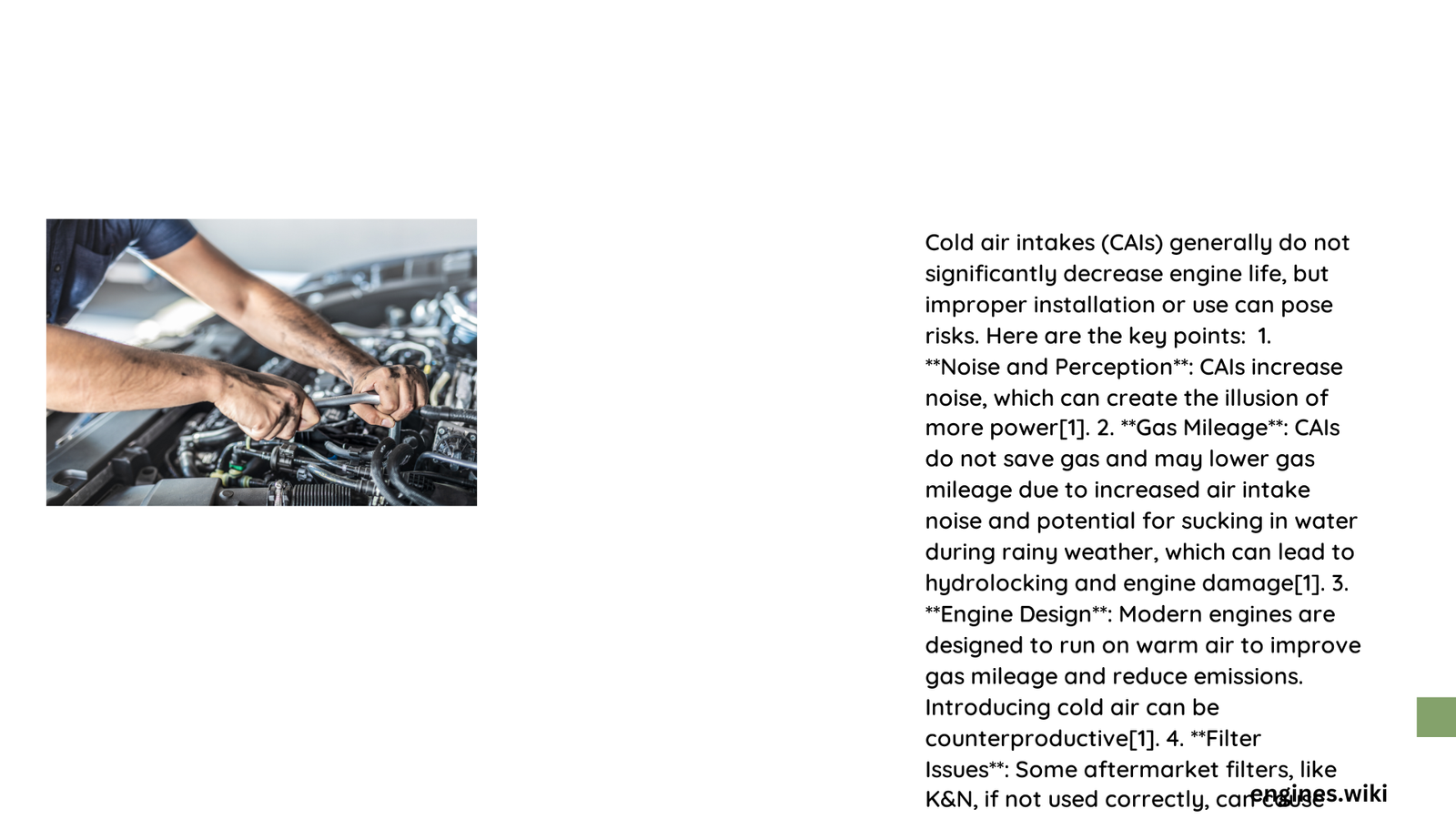Cold air intakes represent a popular performance modification that sparks ongoing debate among automotive enthusiasts regarding potential engine wear. Vehicle owners frequently question whether these aftermarket components compromise engine durability or provide genuine performance benefits. Understanding the intricate relationship between cold air intake systems and engine longevity requires comprehensive technical analysis and empirical evidence.
What Happens When Cold Air Intake Enters Your Engine?
Cold air intake systems fundamentally alter the air intake process by replacing standard restrictive factory air boxes with larger, more efficient intake tubes and high-flow air filters. These modifications aim to increase airflow and reduce intake air temperature, potentially enhancing overall engine performance.
Does Cold Air Intake Introduce Additional Engine Stress?
| Stress Factor | Impact Level | Potential Consequence |
|---|---|---|
| Air Volume | Low | Minimal additional mechanical stress |
| Air Temperature | Moderate | Potential cooling effect |
| Filter Quality | High | Critical for preventing debris damage |
Key Performance Considerations
- Air Density Improvement
- Cooler air provides denser oxygen molecules
- Enhanced combustion efficiency
-
Potential slight horsepower increase (5-10%)
-
Thermal Management
- Reduces intake air temperature
- Minimizes heat-related engine stress
- Promotes more consistent engine performance
Can Improper Installation Compromise Engine Health?
Incorrect cold air intake installation poses significant risks:
- Potential Water Ingestion: Placing intake in low-lying areas increases hydrolocking risk
- Air Leak Possibilities: Improper sealing can cause lean air-fuel mixture
- Debris Contamination: Low-quality filters might allow harmful particles into engine
Scientific Perspective on Engine Wear

Empirical research suggests minimal direct correlation between cold air intakes and accelerated engine wear. Modern engines are engineered to accommodate varied air intake conditions, making substantial wear unlikely when proper installation protocols are followed.
Maintenance Recommendations
- Select high-quality, vehicle-specific cold air intake systems
- Ensure professional installation
- Regular filter cleaning and replacement
- Monitor engine performance after modification
Performance vs. Longevity Trade-offs
While cold air intakes offer performance enhancements, they do not inherently decrease engine life when:
– Professionally installed
– Matched to specific vehicle specifications
– Maintained according to manufacturer guidelines
Expert Insights
Automotive engineers consistently emphasize that well-designed cold air intakes:
– Provide marginal performance improvements
– Do not significantly compromise engine durability
– Require meticulous selection and installation
Conclusion: Balanced Perspective
Cold air intakes do not decrease engine life when implemented correctly. The key lies in understanding your specific vehicle requirements, choosing high-quality components, and maintaining proper installation standards.
Potential Benefits
- Improved horsepower
- Enhanced fuel efficiency
- Potential slight cooling effect
- Minimal mechanical stress
Potential Risks
- Improper installation
- Low-quality component selection
- Inadequate maintenance
Reference:
– [1] https://www.carorbis.com/
– [2] https://www.specialtyperformanceparts.com/
– [3] https://www.cobbtuning.com/
Disclaimer: Individual vehicle performance may vary. Consult professional automotive technicians before making modifications.
